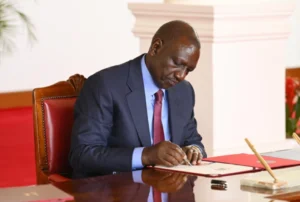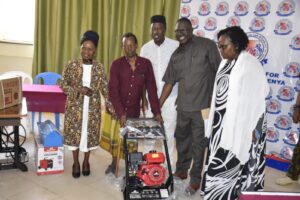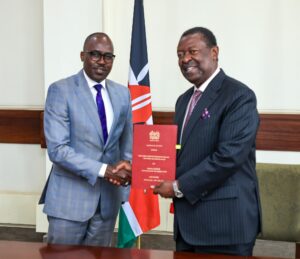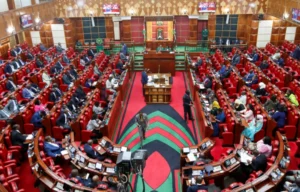Journalists Ranked as One of the Least Corrupt Professions in Kenya
EACC National Ethics and Corruption Survey 2024 Report is a comprehensive study that aims to assess the prevalence of corruption

EACC National Ethics and Corruption Survey 2024 Report is a comprehensive study that aims to assess the prevalence of corruption and unethical practices in important segments of Kenyan society. Photo/ Courtesy
By Robert Assad
In a recent survey carried out by the Ethics and Anti-Corruption Commission (EACC), journalists have been ranked as one of Kenya’s least corrupt professions. The survey, conducted under the EACC’s National Ethics and Corruption Survey 2024 Report, discovered that 5.1% of the respondents viewed journalists as engaging in unethical acts and corruption.
The survey, conducted in August 2025, positioned various professions based on their level of perceived corruption. The survey determined that the most corrupt officers were police officers since 27.6% of the interviewees indicated that they engaged in unethical conduct and corruption. Other top-ranked professions were KRA officers (17.3%), chiefs (16.2%), and county inspectorate officers (14.6%).
On the other hand, journalists were ranked at one of the least corrupt professions, after that come university lecturers (6.0%), teachers (6.5%), and economists (6.9%). Results from the survey portray a fairly high level of trust in the profession by journalists.
EACC National Ethics and Corruption Survey 2024 Report is a comprehensive study that aims to assess the prevalence of corruption and unethical practices in important segments of Kenyan society. The report provides insightful information on the perception of corruption and unethical practices within professions and sectors.
According to the report, the top 5 professions viewed to be involved in unethical practices and corruption are:
* Police Officers: 27.6%
* KRA Officers: 17.3%
* Chiefs: 16.2%
* County Inspectorate Officers: 14.6%
* Lawyers: 14.1%
On the other hand, the 5 jobs found to be least engaged in unethical conduct and corruption are:
* Journalists: 5.1%
* University Lecturers: 6.0%
* Teachers: 6.5%
* Economists: 6.9%
* Engineers: 7.1%
In general, the findings of the survey suggest that endeavors toward developing ethics and integrity in various professions and industries in Kenya must go on. By understanding the corruption and immoral practices attitudes, the stakeholders are able to develop particular strategies for addressing these malpractices as well as developing a culture of accountability and integrity.





